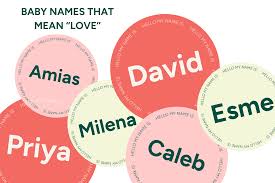How Education Systems Can Address Climate Change

Strong 8k brings an ultra-HD IPTV experience to your living room and your pocket.
Climate change is one of the most pressing issues of the 21st century, with global temperatures rising, weather patterns becoming more erratic, and natural ecosystems being disrupted. While governments and industries play a significant role in combating climate change, education systems hold immense potential to contribute to long-term solutions. By equipping learners with knowledge, skills, and values necessary for sustainable living, education systems can become powerful agents of environmental stewardship.
Understanding Climate Change Through Education
The first step in addressing climate change through education is awareness. Climate literacy should be integrated into school curricula at all levels, from primary to tertiary education. Students need to understand the science behind climate change, including greenhouse gas emissions, the carbon cycle, and the impact of human activity on the environment.
However, education must go beyond theoretical knowledge. Students should learn about the socio-economic and political aspects of climate change, including how it affects vulnerable communities, contributes to global inequality, and intersects with issues such as food security, water scarcity, and public health. A well-rounded curriculum will empower students to think critically about climate issues and develop solutions grounded in scientific evidence and social justice.
Empowering Teachers for Climate Education
Educators are the backbone of any education system, and their training is crucial for effective climate education. Professional development programs should be provided to help teachers understand complex climate science and how to communicate it effectively in classrooms. Additionally, teachers should be encouraged to adopt interdisciplinary approaches, linking climate topics with geography, biology, economics, ethics, and even literature.
By enabling teachers to confidently address climate change, schools can create learning environments where students feel inspired to engage with environmental issues and take meaningful action.
Promoting Environmental Responsibility in Schools
Education systems can lead by example by making schools models of sustainability. Implementing eco-friendly practices—such as recycling, composting, reducing plastic use, and conserving energy—teaches students the importance of responsible resource use. Schools can also establish green spaces like gardens or tree plantations to foster a connection with nature.
Furthermore, student-led initiatives, like eco-clubs or sustainability projects, provide hands-on opportunities to apply what they’ve learned. These activities help build a sense of ownership and responsibility, encouraging lifelong habits that contribute to environmental protection.
Integrating Technology for Sustainable Learning
Digital tools and technologies can enhance climate education in various ways. Virtual simulations, interactive videos, and online resources can bring complex climate concepts to life and make them more accessible. Moreover, technology enables schools to reduce paper usage and minimize their carbon footprint.
One emerging area of interest is online education, which has transformed the way knowledge is delivered. While it offers flexibility and wider reach, it also presents opportunities to design climate-focused courses that are accessible globally. Online platforms can connect learners across continents, fostering cross-cultural dialogue and global collaboration on climate issues.
Encouraging Community and Policy Engagement
Education systems should also foster civic engagement by encouraging students to participate in community-based sustainability initiatives. Partnerships with local organizations, governments, and NGOs can help bridge the gap between classroom learning and real-world impact. Activities like clean-up drives, tree planting, and climate advocacy campaigns can instill a strong sense of civic responsibility in students.
Moreover, schools can serve as centers for climate action by hosting workshops, forums, and discussions involving parents, local leaders, and community members. When education extends beyond the classroom and into the broader community, it amplifies its impact and promotes a culture of sustainability.
Culturally Relevant and Inclusive Education
Incorporating climate change education into culturally relevant frameworks ensures that learners can relate global challenges to their local contexts. Indigenous knowledge systems, for example, often include sustainable practices that have been passed down for generations. By respecting and integrating these traditions, education becomes more inclusive and reflective of diverse worldviews.
For instance, religious education can also play a role. Many religious teachings emphasize stewardship of the Earth and the importance of living in harmony with nature. In Islamic teachings, for example, the concept of Khilafah (guardianship) encourages humans to act as caretakers of the planet. Learners who Learn Quran Online often encounter these principles, which can be linked to modern environmental ethics to reinforce values of conservation and responsibility.
Climate Change in Higher Education and Research
At the tertiary level, universities and colleges can contribute by offering specialized courses in climate science, environmental engineering, sustainable development, and related fields. Academic institutions should also prioritize climate-related research and collaborate with industries to develop innovative technologies and sustainable practices.
Moreover, higher education institutions should aim to reduce their own environmental impact by adopting green campus initiatives. From energy-efficient buildings to waste management systems, universities can model the sustainable behaviors they teach, setting an example for students and the broader community.
Global Cooperation Through Education
Climate change is a global issue that requires collective action. Education can serve as a tool for global cooperation by fostering international collaboration, dialogue, and shared understanding. Initiatives like UNESCO's Education for Sustainable Development (ESD) and the UN’s Sustainable Development Goals (SDGs) provide frameworks for integrating climate change into global education agendas.
Through global exchange programs, international conferences, and shared online platforms, students and educators can learn from each other and develop united responses to climate challenges. By instilling a sense of global citizenship, education systems can inspire future leaders who are committed to creating a sustainable world.
The Way Forward: Policy Support and Investment
For education systems to effectively address climate change, strong policy support and investment are essential. Governments should prioritize climate education in national curriculums and allocate resources for teacher training, infrastructure, and community engagement. Public-private partnerships can also play a role by funding research and supporting school sustainability programs.
Finally, education must be treated as a long-term investment in the planet’s future. While policy changes and technological advancements are critical, cultivating informed, responsible, and proactive citizens through education remains one of the most powerful strategies in the fight against climate change.
Conclusion
Climate change is not just a scientific issue—it is an educational imperative. By integrating climate change into the heart of educational systems, we can empower future generations with the knowledge, values, and tools they need to build a more sustainable world. Whether through formal schooling, community-based learning, or digital platforms like online education, the role of education in addressing climate change is both crucial and transformative.
Note: IndiBlogHub features both user-submitted and editorial content. We do not verify third-party contributions. Read our Disclaimer and Privacy Policyfor details.



